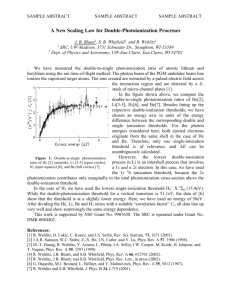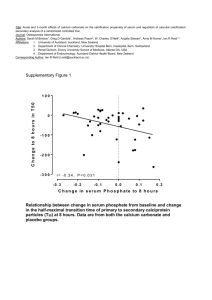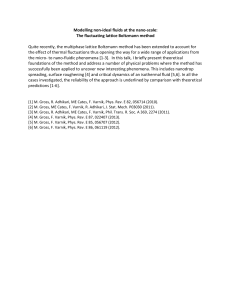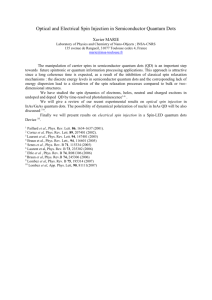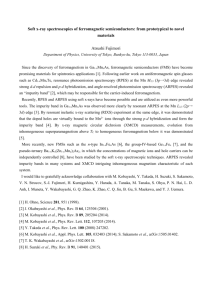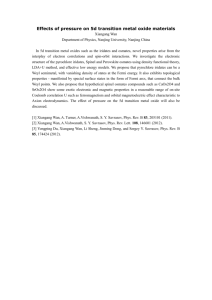Ashkan Gharib
advertisement
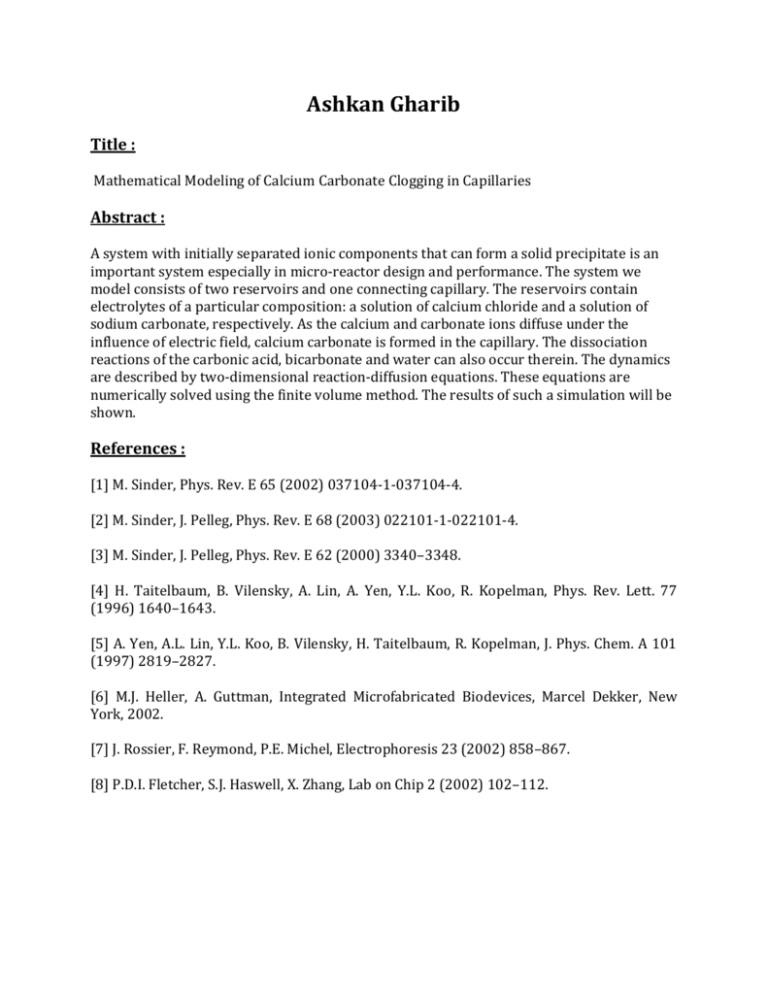
Ashkan Gharib Title : Mathematical Modeling of Calcium Carbonate Clogging in Capillaries Abstract : A system with initially separated ionic components that can form a solid precipitate is an important system especially in micro-reactor design and performance. The system we model consists of two reservoirs and one connecting capillary. The reservoirs contain electrolytes of a particular composition: a solution of calcium chloride and a solution of sodium carbonate, respectively. As the calcium and carbonate ions diffuse under the influence of electric field, calcium carbonate is formed in the capillary. The dissociation reactions of the carbonic acid, bicarbonate and water can also occur therein. The dynamics are described by two-dimensional reaction-diffusion equations. These equations are numerically solved using the finite volume method. The results of such a simulation will be shown. References : [1] M. Sinder, Phys. Rev. E 65 (2002) 037104-1-037104-4. [2] M. Sinder, J. Pelleg, Phys. Rev. E 68 (2003) 022101-1-022101-4. [3] M. Sinder, J. Pelleg, Phys. Rev. E 62 (2000) 3340–3348. [4] H. Taitelbaum, B. Vilensky, A. Lin, A. Yen, Y.L. Koo, R. Kopelman, Phys. Rev. Lett. 77 (1996) 1640–1643. [5] A. Yen, A.L. Lin, Y.L. Koo, B. Vilensky, H. Taitelbaum, R. Kopelman, J. Phys. Chem. A 101 (1997) 2819–2827. [6] M.J. Heller, A. Guttman, Integrated Microfabricated Biodevices, Marcel Dekker, New York, 2002. [7] J. Rossier, F. Reymond, P.E. Michel, Electrophoresis 23 (2002) 858–867. [8] P.D.I. Fletcher, S.J. Haswell, X. Zhang, Lab on Chip 2 (2002) 102–112.
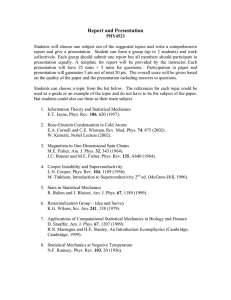
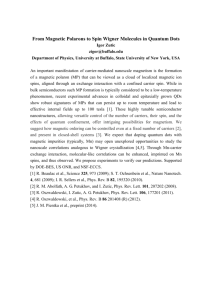
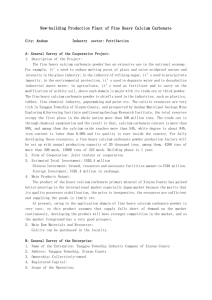
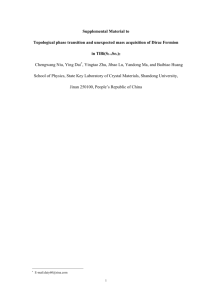
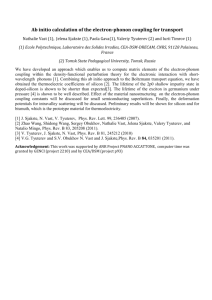
![[1]. In a second set of experiments we made use of an](http://s3.studylib.net/store/data/006848904_1-d28947f67e826ba748445eb0aaff5818-300x300.png)
